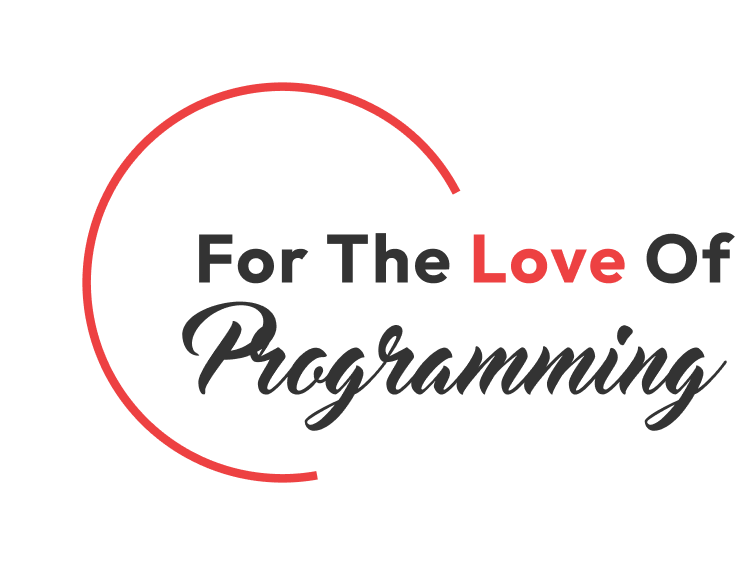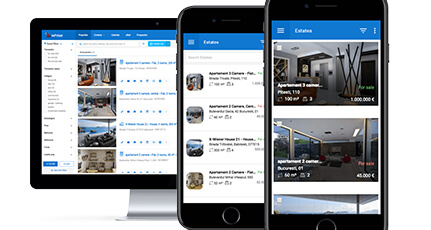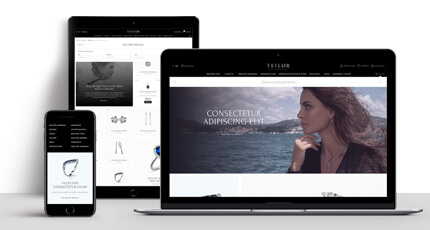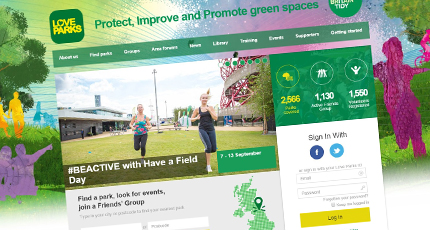We often meet professionals with inspiring stories and remarkable career paths in the IT world. Among them is Ionut Dinca, senior solution architect in one of the longest-lived projects Roweb, who completely redefined his career, moving from teaching to developing real applications. He shares his experiences and evolution, revealing how he became a part of the Roweb team.
With an experience of over 18 years as a Lecturer at the University of Pitesti, Faculty of Informatics, Ionut Dinca has constantly developed his knowledge in the field of informatics. After graduating from the University, obtaining a master’s degree and a doctorate in 2011, his passion for informatics and pedagogy led him to the position of University Lecturer.
2013 brought a new challenge: he chose to join the Roweb team. Here, he discovered a flexible environment and long-term growth opportunities that convinced him to combine his academic activity with application development at Roweb.
Developing complex software applications and working in a practical environment changed his perspective and directly influenced how he teaches at the University today.
Find out from the interview below what Ionut told us (on & off-record) about:
- his career path;
- how he became part of Roweb team;
- what attracted him the most to the company;
- what it means to work on a complex and continuously developing software project;
- how his experience in a dev team influenced his way of teaching;
- what he likes to do when he’s away from the lines of code;
- what determines him to remain part of the Roweb team.
OFF-RECORD INTERVIEW
First, a teacher and then a senior developer? Or… what is the correct order? 🙂
At least from a chronological point of view, that’s correct, yes 🙂
I have taught for over 18 years at the University of Pitesti – Faculty of Informatics (Computer Science). Since 2004, more precisely.
I am a graduate of the University of Pitesti (here, I also did a master’s degree and then a doctorate in 2011). I was attracted, from the very beginning, by the idea of passing on my knowledge to future generations. So, today I am a Lecturer at the University.
I came to Roweb later. In 2013, we started the collaboration.
My brother, Cornel, was already employed at Roweb. He told me about the company, projects, and people, and I became interested in collaborating with the team here.
The first interaction with Roweb and what attracted you to become part of the team…
Even now, I remember Gabi Rosu calling me, and I went to a meeting where I had a first discussion with him. Both the project and the company seemed very attractive.
In addition, I was also attracted by the fact that it is a local company that came with the flexibility that I need (considering that I wanted to remain a professor at the University).
It complemented, right from the beginning, very nicely with what I was doing as a teacher.
I was involved in some research projects in which I was doing software development and which ended, as a coincidence, right in 2013.
After those projects, I decided to insist more on the practical side of the IT field. I started to like it more and more. In addition, I also dealt with this area during my doctorate. And the research projects came as an additional confirmation.
What project did you start with at Roweb and how did the accommodation phase look (taking into account that you basically went from teaching to development)?
I entered directly on the complex project developed for an international Real Estate company and, since then, I have remained stable on this project for more than 10 years.
I am in charge of the software architecture part. I designed the initial architecture of the system for the application. In addition, I am also the architect of the database. So backend.
In the beginning, until I got used to the system, to the business, I initially worked on small applications. (for example, something related to import-export to get used to their system). After a while, we had to make a rather significant change in the project: the transition from a desktop application – as it was the first time I came to Roweb – developed in WPF to a web version. The change was meaningful at the time. My responsibility was to think of a suitable architecture for the web in the backend area.
Including at the moment we are going with the architecture designed then.
And you chose to remain part of this project because…
I saw the possibility of growth within the project. The management team has a long-term development vision, and I was always able to learn new things. We could use current technologies – which is very important – and the client always wanted long-term growth.
This involved more and more challenges which led to our development from a career point of view: complex projects + current technologies. Now we are with the application on Azure, and we can apply technologies on DevOps.
Even lines of code need to breathe from time to time. So, when you’re not a teacher or part of the team, you like to spend your time the most…
In front of the piano. Or with the guitar. Or the accordion.
Since I was very young, music has attracted me. Whenever I have the opportunity, with my colleagues, family or friends, I take my time and play something for them, I give a small recital 🙂
But I’m not only passionate about the piano. I have also been playing the guitar for many years.
From classical to pop, jazz – I like various styles.
If in IT, my focus was intense on school (both in the learning phase and in the stage of passing on my knowledge to new generations), I was self-taught as far as music is concerned. I learned to play three instruments by myself: piano, guitar and accordion.
I also played in Roweb, 2-3 times – mostly at Christmas and singing carols 🙂
(And I managed to pass on my passion for music to my children. As for a direction towards programming, IT, I still can’t say. And I don’t even try to intervene in any way. I want them to discover to do whatever they choose for pleasure.)
Coming back to your choice :), has the fact that you are directly involved in the development of complex software applications and that you have been working in this practical area for over 10 years, changed/influenced your way of teaching?
Yes, definitely, yes.
The fact that I made direct contact with the industry helped both me, because I expanded my area of expertise, and the students because I could come up with more practical elements. Having experience developing real applications, I somehow rethought my teaching method. I went more into the application area. The theoretical aspects remained, of course, the basis on which we continue to build things. What has changed is, in particular, at the project level. Students are now given more complex projects. I try to constantly increase their difficulty level to take them out of their comfort zone.
For example, for several years, I have been teaching a course called “Principles of software design”: the application part of software development (design patterns, design, development). I noticed that they are very attracted to the course.
What is the feedback that you receive from them (former students) once they have been hired?
Many of them tell me, after they get hired, that my courses were very useful and helped them concretely at work.
At one point, we had a student who got a job here. He told me, when he first came to Roweb:
“Look, I’m coming to the company with the notebook from your course!”
It’s amazing to realize that someone can apply something they learned at University in the industry.
In certain courses, most people usually complain about this: “I don’t understand what I need it for? What do I use this for? When will I use this (information)?”
Of course, it should not be exaggerated in any direction. After all, in school, you establish small contacts with the world in which you want to develop. You cannot deepen a field only at the University.
The faculty opens up small horizons, teaches you to study, and lays your foundations in specific directions.
On the other hand, there are very theoretical courses that are only useful for someone who is still researching the Master’s in the respective direction and is not necessarily interested in the applicable elements.
Beyond projects and continuous development in the practical area, what attracted you to work and, then, to remain part of the Roweb team?
At Roweb, I like the atmosphere in the team – and I mean, of course, my team in particular. We understand each other very well, it’s a relaxed atmosphere, and we can discuss various things, not only related to projects or IT, without restraint. I already know many people from Roweb from University. I had many former students at the University who are now employed at Roweb, even among the oldest. For example, Gabriel Nitulescu – now a colleague in the project and with whom I get along very well – was my student when he was in his fourth year. I was a young university teacher, and he was my student at the laboratory at that time.
The context and the time allowed us to move the interaction beyond the role of student/teacher and laboratory hours. Today, we are two colleagues who have formed a beautiful friendship.
A flashback from the early years in the company?
At the headquarters on Trivale Street, I remember the sandwiches from the market across the street and the walks in the Trivale forest during the lunch break 🙂
Roweb, as you found it at the beginning vs today’s…
Roweb has grown a lot, and it’s visible. It has grown in many ways. The most visible is the number of employees. When I came, Roweb had only one office on Trivale Street, and there were few employees. Then the company began to expand: more offices appeared in response to the growing teams. And then, the headquarters appeared in other cities.
From my point of view, the atmosphere in the team has not changed (even if new/young colleagues have appeared, etc.) Of course, this situation with the pandemic also distanced us a bit. As an effect of the pandemic and post-pandemic, some colleagues still choose to work remotely, which changes the interaction between us to some extent. But, in our team, we agreed to come to the office 3 days a week. We talked a bit about synchronizing.
How did you get into IT? When did you realize that this is the direction you want?
Since I was little, I have liked mathematics. I was going to math competitions. In the 8th grade, with the help of my parents, I went to the Odobescu – Informatics high school. Until the baccalaureate, I was still oriented towards mathematics.
After the baccalaureate, after the computer science test, I realized that, in fact, I like computer science. I got the highest grade in computer science in high school, and then I realized I have what it takes for this field. And I said to myself… why not? I chose the specialization Informatics-Mathematics and finished the double specialization, but I was more attracted to informatics. Next, I finally chose a doctorate in computer science.
And, to end on the same note: do you remember the first personal computer…
I was in high school in the 10th grade. I interacted with a computer at school – with an earlier version of the Pentium. The first personal computer: I had some acquaintances in the USA (around ’96) who sent me a Pentium 2. At that time, very few people had this type of computer. when the internet was just being born in our country. My parents knew I was passionate about this field and helped me get this computer.





